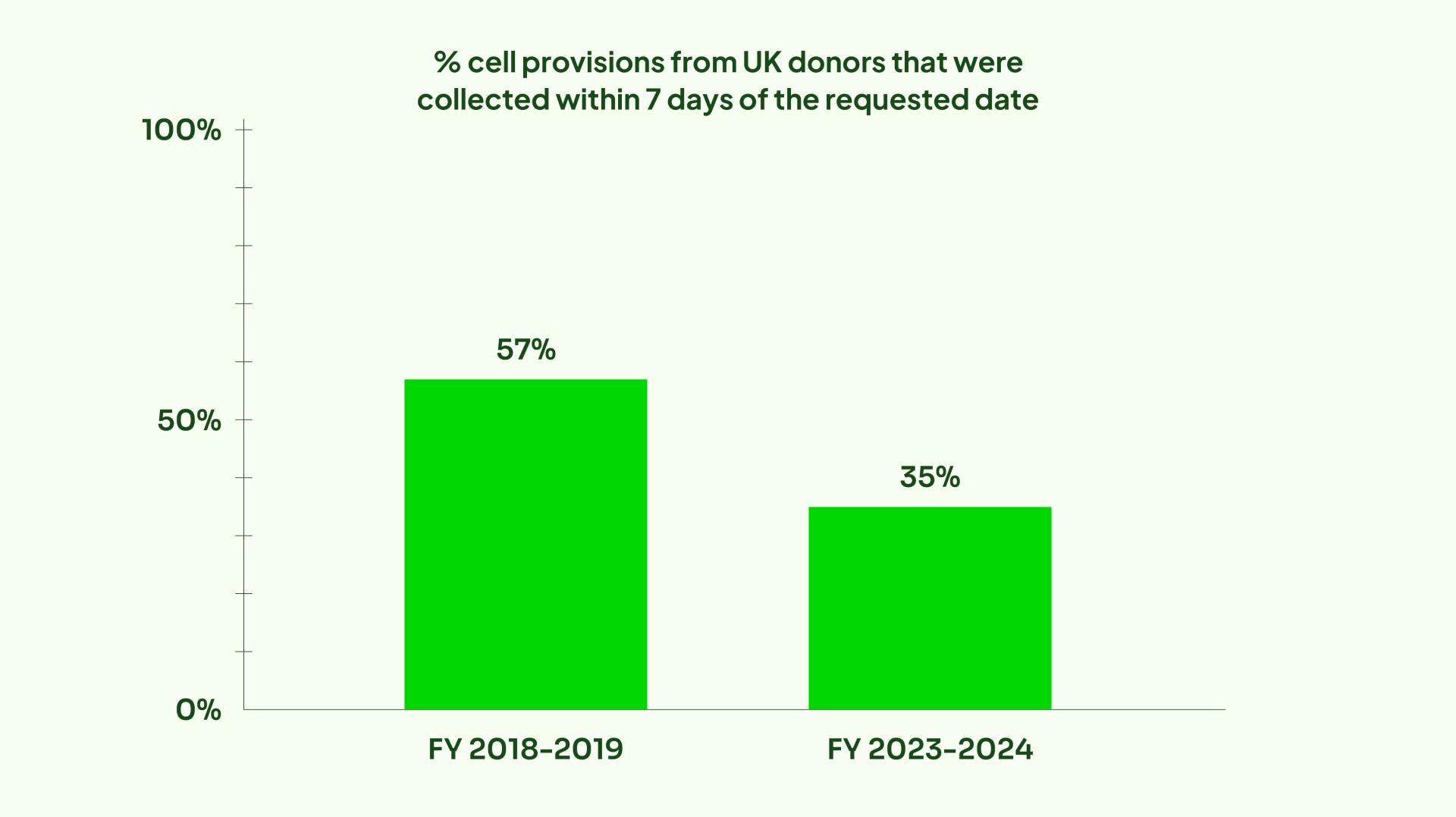CAR T saved my life when I was an inch away from ICU.
Rob Cross
Who had CAR T cell therapy to treat blood cancer
Cell therapies are now regularly saving the lives of people who would previously have had incurable diseases.
Since the first CAR T-cell therapy was delivered on the NHS in 2018, over 1,000 people with blood cancer have received this groundbreaking treatment, in which the patient’s cells are edited to recognise and destroy cancer cells.
Hundreds of new advanced cell therapies are being developed – with the potential to save and improve even more lives. By tackling persistent skills and infrastructure gaps, we have the opportunity to unlock this next generation of treatments for NHS patients.
This roadmap outlines the actions the UK Government can take in its first year to unlock the power of a thriving cell therapy system – one that saves more lives and contributes significantly to the economy.
A roadmap for the first year in government
1. Invest in the cell therapy workforce
Cell therapies require a highly skilled NHS workforce, including specialist doctors, nurses, laboratory staff, and data managers. Yet, there is no national training curriculum for key cell therapy staff groups despite the intricate, complex nature of this field.
Stem cell transplant and CAR T services are running at maximum capacity with chronic staff shortages, hampering the ability of the system to test, innovate and grow.
Priority actions
- Benchmark, recruit and retain the cell therapies workforce to plan for the anticipated rapid growth in these treatments within the NHS Long Term Workforce Plan commitments.
- Support nationwide educational initiatives that upskill the multidisciplinary cell therapy workforce.
The vast majority of transplant centres have gaps in their staffing needs, with highly specialised team members across all areas, such as haematology consultants, nurses, pharmacists and data managers, in short supply. As cell therapy becomes ever more complex, we are rapidly approaching a crisis point in the workforce that needs urgent intervention.
Dr Eleni Tholouli
Chair of The BSBMTCT Workforce Sub-Group
2. Grow the UK’s apheresis capacity
Apheresis (cell collection) is a fundamental requirement for the development and delivery of cell therapies, but demand for apheresis is at an all-time high and the system is under enormous pressure. Investment in apheresis facilities is crucial to enable the life sciences sector to develop cell therapies and ensure patients receive timely and effective treatment.
Priority action
- Urgently expand apheresis capacity and futureproof the infrastructure needed to meet increased demand.
Grow the UK’s apheresis capacity

3. Deliver equitable access to care for patients
There are too many disparities in patients’ access to, experience of, and outcomes from cell therapies. Not every CAR T centre offers support with accommodation or travel costs or provides meaningful psychological support for patients and their families.
Ensuring equal access to high-quality care will mean more patients survive, with fewer long-term effects, and will deliver long-term savings for the NHS.
Priority actions
- Establish a national patient travel fund to support travel and accommodation costs for accessing treatment, and standardise Non-Emergency Patient Transport provision.
- Make ambulatory services available to all patients during and after CAR T treatment, reducing demand for inpatient capacity.
- Provide prehabilitation and rehabilitation as standard for every cell therapy patient, including access to specialist psychological support.
CAR T-cell therapy saved my life, but the journey was tough – not just for me, but for my entire family. We were fortunate to have access to ambulatory care during the process, but I know not everyone is as lucky. Every patient should have the opportunity to receive this lifesaving treatment without worrying about travel and hotel costs, taking time out of work, and the impact on their family.
Rob Cross
Who had CAR T-Cell therapy to treat blood cancer
An NHS fit for the future
These actions will help return the UK to its world-leading position in the research and development of advanced cell therapies such as CAR T.
Alongside wider reform of the UK’s innovation and adoption approach, the government has a golden opportunity to achieve its vision of an NHS fit for the future, and a life sciences ecosystem delivering pioneering breakthroughs that will save and transform patients’ lives for the better.
Contact
We would be delighted to work with you to unlock the potential of cell therapies, saving and transforming the lives of people with blood cancers and blood disorders.
For more information, please get in touch at public.affairs@anthonynolan.org.